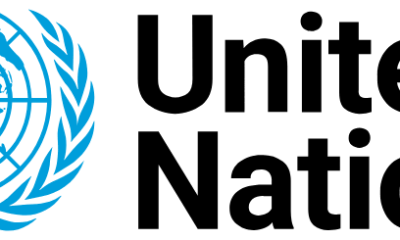Foreign
UN adds Israel to blacklist

Last Updated on June 10, 2024 by Fellow Press
United Nations Secretary-General Antonio Guterres has added Israel’s military to a global list of offenders that have committed violations against children, his spokesman confirmed on Friday.
Israel had been told it is being placed on the list in the secretary-general’s annual report on children in armed conflict, to be sent to the UN Security Council next Friday, Stephane Dujarric told a press briefing.
Hamas and Palestinian Islamic Jihad were also added to the list, according to a diplomatic source, along with the Israel Defense Forces (IDF).
Dujarric added that the Israeli UN mission was called by Guterres’ chief of staff on Friday, a courtesy afforded to countries that are newly listed. “It is done to give those countries a heads-up and avoid leaks,” he said.
Israeli Ambassador to the UN Gilad Erdan recorded a video of himself making a phone call from his office, apparently to a UN official, and leaked part of it on social media.
In the video, Erdan expressed outrage at the UN decision, calling the IDF “the most moral army in the world.”
“The only one who is blacklisted today is the secretary-general, whose decisions since the war started, and even before, are rewarding terrorists and incentivizing them to use children for terror acts… Shame on him!”
Dujarric said it was “shocking and unacceptable” that Erdan had apparently published the private call, saying it was “something he had never seen in my 24 years serving this organization.”
Israel’s inclusion on the list comes after eight months of war in Gaza, in which more than 15,500 children have been killed, according to the Ministry of Health in the enclave.
The war was sparked by a Hamas-led assault on Israel on October 7, which killed 1,200 people and saw some 250 others taken hostage. Many are still in captivity and Hamas’ top leadership is still at large despite the Israeli onslaught.
The UN’s so-called blacklist has previously included countries such as Saudi Arabia, Afghanistan, the Democratic Republic of Congo, Sudan, Syria, and Yemen.
Riyad Mansour, the Palestinian envoy to the UN, said the decision to add Israel to the list “will not bring back tens of thousands of our children who were killed by Israel over decades and will not restore normal life for the children who were permanently disabled by its actions.”
“But it is an important step in the right direction towards ending the double standards and the culture of impunity Israel has enjoyed for far too long and that left our children vulnerable to its consequences.”
The annual report will go to the Security Council on June 14. The official report will be published on June 18. It will be discussed at a debate in the council on June 26.
Asked about ramifications, the UN spokesman said it will be up to the members to decide any action.
The war has seen Israel-UN relations reach historic lows with Israeli diplomats using their platforms at the UN to denounce the world body.
Israel’s quarrel with the UN has gone beyond the secretary-general. Israeli officials have also criticized the United Nations Relief and Works Agency for Palestine Refugees (UNRWA), the World Health Organization, UN Women, and the UN’s Special Rapporteur for the Occupied Palestinian Territories Francesca Albanese.
Meanwhile, dozens of UN staffers have been killed in Gaza since the conflict began, the largest loss in the world body’s history.
Israel has long accused UNRWA of anti-Israeli incitement, which UNRWA has repeatedly denied, and in 2017, Israeli Prime Minister Benjamin Netanyahu sought to dismantle the UN body, saying it should be merged with the main UN refugee agency.
Since the October 7 attack, Israeli journalists and news outlets have refocused their attention on UNRWA and have amplified stories questioning its role in the war.
Foreign
U.S. Supreme Court upholds federal domestic-violence gun ban

Last Updated on June 22, 2024 by Fellow Press
The U.S. Supreme Court on Friday upheld a federal law that makes it a crime for people under domestic violence restraining orders to have guns.
The ruling handed victory to President Joe Biden’s administration as the justices opted not to further widen firearms rights after a major expansion in 2022.
The 8-1 ruling, authored by conservative Chief Justice John Roberts, overturned a lower court’s decision striking down the 1994 law as a violation of the U.S. Constitution’s Second Amendment right to “keep and bear arms.”
The law was challenged by a Texas man who was subject to a restraining order for assaulting his girlfriend in a parking lot and later threatening to shoot her.
The New Orleans-based 5th U.S. Circuit Court of Appeals had concluded that the measure failed the Supreme Court’s stringent test set in 2022 that required gun laws to be “consistent with the nation’s historical tradition of firearm regulation” to comply with the Second Amendment.
Roberts wrote in the ruling that since the nation’s founding, firearm laws have targeted people who threaten physical harm to others.
“When a restraining order contains a finding that an individual poses a credible threat to the physical safety of an intimate partner, that individual may – consistent with the Second Amendment – be banned from possessing firearms while the order is in effect,” Roberts wrote.
Biden’s administration defended the law as critical to protect public safety and abuse victims, who often are women.
It emphasised that guns pose a particularly serious threat in domestic violence situations and also are extremely dangerous to police officers called to respond.
“No one who has been abused should have to worry about their abuser getting a gun,” Biden said, touting his record on gun control.
“As a result of (Friday’s) ruling, survivors of domestic violence and their families will still be able to count on critical protections, just as they have for the past three decades.”
Conservative Justice Clarence Thomas, who authored the 2022 ruling in a case called New York State Rifle and Pistol Association v. Bruen, was the lone dissenter.
“Not a single historical regulation justifies the statute at issue,” Thomas wrote.
He added that “in the interest of ensuring the government can regulate one subset of society, (Friday’s) decision puts at risk the Second Amendment rights of many more.”
The case involved Zackey Rahimi, who pleaded guilty in 2021 to illegally possessing guns in violation of this law while subject to a restraining order.
Police found a pistol and rifle while searching Rahimi’s residence in connection with at least five shootings, including using an assault-type rifle to fire at the home of a man to whom he had sold drugs.
A federal judge had rejected Rahimi’s Second Amendment challenge and sentenced him to more than six years in prison. Violating the domestic violence gun law initially was punishable by up to 10 years in prison but has since been raised to 15 years.
Gun safety groups called Friday’s ruling a legal victory that will help counter firearms violence. But they condemned actions by the 5th Circuit, perhaps the most conservative federal appeals court, that let the case get this far.
“As millions of domestic violence victims breathe a sigh of relief, it’s worth remembering who put them in jeopardy: extreme Trump-appointed judges on the 5th Circuit who sided with an abuser who wanted to keep his guns,” said John Feinblatt, president of Everytown for Gun Safety, referring to Republican former President Donald Trump.
Rahimi’s lawyer declined to comment on the ruling.
In a May Reuters/Ipsos poll, 75 per cent of registered voters, including 84 per cent of Democrats and 70 per cent of Republicans, said that a person subject to a domestic violence restraining order should not be allowed to possess firearms.
In a nation bitterly divided over how to address firearms violence including frequent mass shootings, the Supreme Court often has taken an expansive view of the Second Amendment, broadening gun rights in landmark rulings in 2008, 2010, and 2022.
The 2022 Bruen ruling recognized a constitutional right to carry a handgun in public for self-defense, striking down a New York state’s limits on carrying concealed handguns outside the home.
In another case, the Supreme Court in a 6-3 ruling on June 14 declared unlawful a federal ban on “bump stock” that enable semiautomatic weapons to fire rapidly like machine guns.
The 5th Circuit last year set aside Rahimi’s conviction, concluding that although he was “hardly a model citizen,” the 1994 law was an “outlier” that could not stand under the “historical tradition” standard the justices announced in Bruen.
Supporters of Rahimi have argued that judges too easily issue restraining orders in an unfair process that results in the deprivation of the constitutional gun rights of accused abusers.
Business
Global foreign investment declines as geopolitical tensions rise – UNCTAD

Last Updated on June 21, 2024 by Fellow Press
The United Nations Trade and Development Organisation (UNCTAD) has said that Foreign Direct Investment (FDI) fell by two per cent to 1.3 trillion dollars in 2023 amid global economic slowdown and rising geopolitical tensions.
UNCTAD said this in a statement released on Thursday.
The organisation’s 2024 World Investment Report highlighted that insufficient funding is hindering efforts to achieve its 2030 for Sustainable Development agenda, underscoring the urgent need for policies to bolster finance.
“Investment is not just about capital flows; it is about human potential, environmental stewardship and the enduring pursuit of a more equitable and sustainable world,” Rebeca Grynspan, Secretary-General of UNCTAD, said.
The report notes that the decline in FDI exceeds 10 per cent, when excluding the large swings in investment flows in a few European conduit economies, with developing countries the most affected.
According to UNCTAD, the decrease was primarily due to rising geopolitical tensions and concerns over “greenwashing,” a marketing practice to make things seem more environmentally friendly than they actually are.
“Foreign direct investment is crucial for funding infrastructure and public services such as power and renewable energy. However, tight financing conditions in 2023 led to a 26 per cent drop in the number of FDI deals.
“This drop triggered a ten per cent decrease in investment in sectors linked to Sustainable Development Goals (SDGs), most notably in agrifood systems, water and sanitation.
“These sectors registered fewer internationally financed projects in 2023 than in 2015, when all countries signed up to the Goals to be achieved by 2030,” said the report.
The report further revealed that developing countries were hit the hardest.
It said these countries registered only marginal growth in sustainable bonds last year and a 60 per cent drop in financing for funds to support them.
“FDI flows to developing countries fell by seven per cent to 867 billion dollars last year, but the decrease varied across regions.
“Developing economies in Asia, home to 60 per cent of the world’s megaprojects, recorded a significant increase in greenfield FDIs – investments where a company establishes new operations or expands its existing facilities in a foreign country.
“These investments registered a 44 per cent rise in the overall value, and a 22 per cent increase in the number of such announcements,” it said.
However, the report stated that overall foreign investment flow to Asia receded, falling from about 678 billion dollars in 2022 to 621 billion dollars in 2023.
“Nevertheless, the continent, led by East and Southeast Asia, continued to be the world’s largest recipient of FDI, accounting for nearly half of global inflows.
“China and its Hong Kong Special Administrative Region (SAR) continue to be the largest investors in the region by total FDI stock, followed by the United States, Japan and Singapore,” said the report.
-

 Breaking News3 days ago
Breaking News3 days agoFire guts Dangote Refinery in Lagos
-

 Headline7 days ago
Headline7 days agoCourt orders permanent forfeiture of Emefiele’s ₦12b property
-

 Job4 days ago
Job4 days agoOyo govt. begins recruitment of 7,000 primary school teachers, 100 caregivers
-

 Business5 days ago
Business5 days agoNigeria’s public debt stock increases to N121.67trn in Q1 2024 – NBS
-

 Headline6 days ago
Headline6 days agoFood vendors lament rising cost of beans, seek FG’s intervention
-

 Headline6 days ago
Headline6 days agoPeter Obi laments exit of multinational companies from Nigeria
-

 Breaking News5 days ago
Breaking News5 days agoNaira abuse: Court strikes out charge against Cubana Chief Priest























